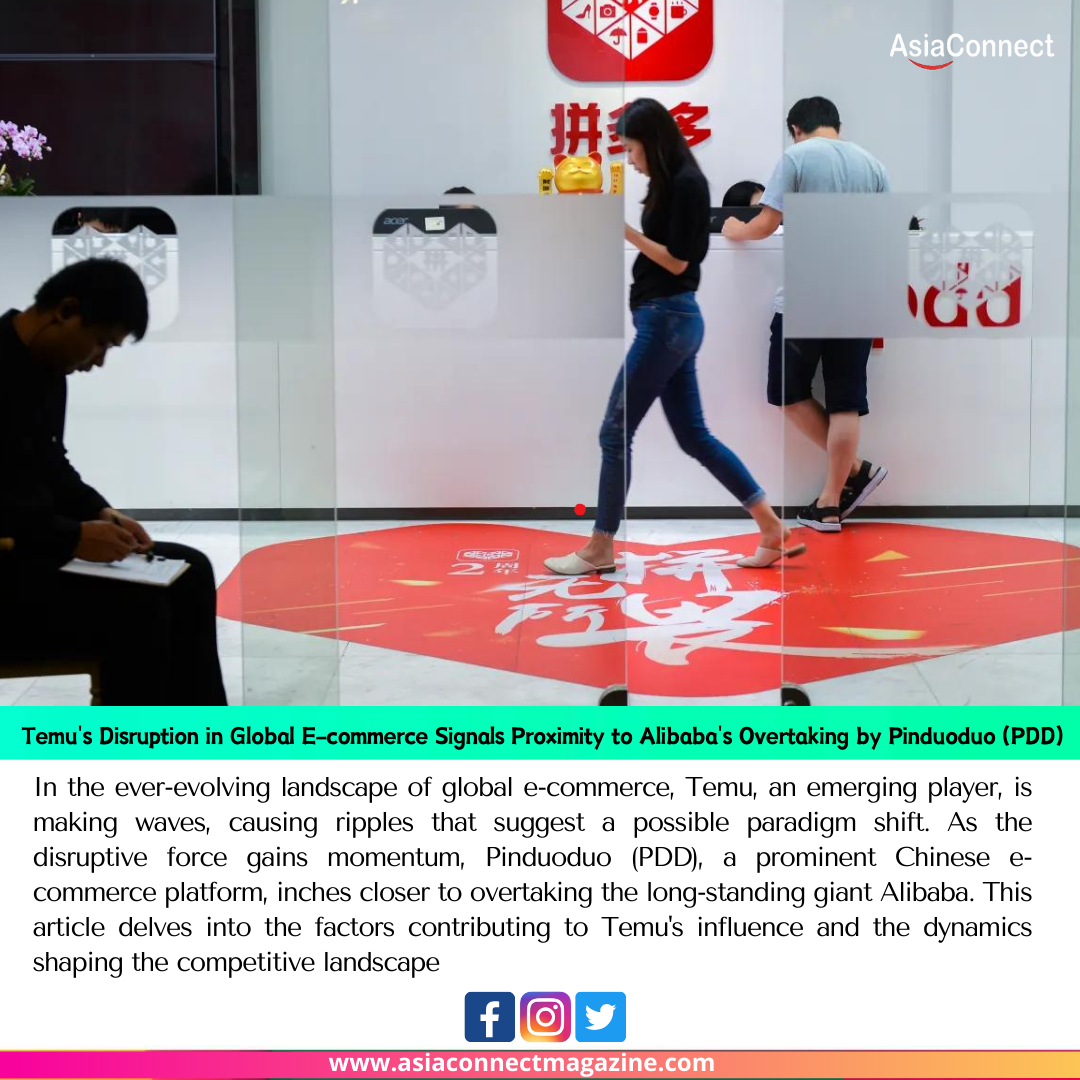In the ever-evolving landscape of global e-commerce, Temu, an emerging player, is making waves, causing ripples that suggest a possible paradigm shift. As the disruptive force gains momentum, Pinduoduo (PDD), a prominent Chinese e-commerce platform, inches closer to overtaking the long-standing giant Alibaba. This article delves into the factors contributing to Temu’s influence and the dynamics shaping the competitive landscape.
1. Temu’s Disruptive Approach:
Temu, a relatively new entrant in the global e-commerce arena, has quickly gained attention for its innovative and disruptive approach. The platform distinguishes itself by leveraging cutting-edge technologies, intuitive user interfaces, and strategic partnerships, providing a unique and personalized shopping experience to users worldwide.
2. Technological Integration:
A key factor propelling Temu’s ascent is its seamless integration of advanced technologies, including artificial intelligence, machine learning, and augmented reality. These technologies enhance user engagement, optimize the shopping journey, and provide personalized recommendations, setting Temu apart from traditional e-commerce platforms.
3. Global Market Expansion:
Temu’s strategy of aggressively expanding into global markets has contributed significantly to its disruptive influence. By tailoring its services to meet diverse consumer needs and preferences, Temu has successfully penetrated markets traditionally dominated by established players, shaking up the competitive landscape.
4. PDD’s Trajectory Toward Alibaba:
While Temu disrupts the status quo, Pinduoduo (PDD) is steadily closing the gap with Alibaba, a giant in the Chinese e-commerce space. PDD’s success is attributed to its innovative group-buying model, which encourages social engagement and collaborative purchasing. This unique approach has resonated with a broad user base, especially in China’s tier-3 and tier-4 cities.
5. Group-Buying Dynamics:
PDD’s group-buying dynamics differentiate it from Alibaba’s traditional model. The platform encourages users to form buying groups to unlock discounts, fostering a sense of community and social commerce. As PDD continues to innovate within this space, it presents a formidable challenge to Alibaba’s established dominance.
6. Competition Intensifies:
The intensifying competition between PDD and Alibaba is evident in market share dynamics and user preferences. PDD’s agility, focus on user engagement, and penetration into untapped markets have positioned it as a strong contender, prompting Alibaba to adapt and innovate to maintain its leadership.
7. Shifting Consumer Behavior:
The rise of Temu and PDD also reflects a broader shift in consumer behavior. Modern consumers, particularly in emerging markets, are increasingly drawn to platforms that offer unique experiences, competitive pricing, and community-driven interactions. This shift challenges traditional e-commerce norms and underscores the importance of adaptability for sustained success.
8. Strategic Partnerships:
Both Temu and PDD have strategically formed partnerships to enhance their offerings and extend their reach. Temu’s collaborations with tech giants and PDD’s alliances to strengthen its supply chain illustrate the significance of ecosystem partnerships in navigating the competitive e-commerce landscape.
9. Future Implications:
The evolving landscape suggests that the e-commerce sector is entering a transformative phase. The influence of Temu, coupled with PDD’s challenge to Alibaba, signifies a shift towards more dynamic, tech-driven, and consumer-centric platforms. As these players continue to innovate and adapt, the industry is poised for further disruptions and reconfigurations.
Conclusion:
As Temu disrupts global e-commerce and Pinduoduo challenges Alibaba’s dominance, the sector is witnessing a seismic shift. The confluence of technological innovation, global market expansion, and changing consumer behavior indicates that the traditional e-commerce landscape is evolving. While Alibaba remains a stalwart, the rise of disruptive forces like Temu and PDD underscores the industry’s dynamic nature and the imperative for established players to innovate and adapt to stay ahead in the competitive race.





